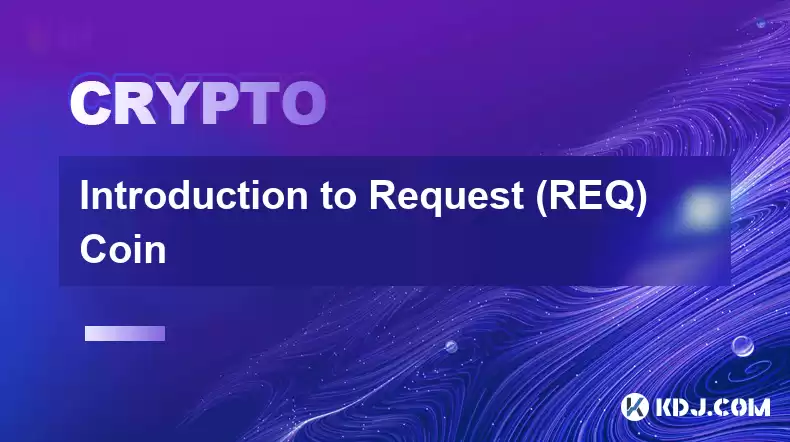-
 Bitcoin
Bitcoin $117700
-1.00% -
 Ethereum
Ethereum $4458
-3.91% -
 XRP
XRP $3.119
0.14% -
 Tether USDt
Tether USDt $1.001
-0.02% -
 BNB
BNB $836.6
-1.56% -
 Solana
Solana $189.5
-3.90% -
 USDC
USDC $0.9998
-0.02% -
 Dogecoin
Dogecoin $0.2335
1.29% -
 Cardano
Cardano $0.9642
1.51% -
 TRON
TRON $0.3539
-1.19% -
 Hyperliquid
Hyperliquid $47.41
-1.84% -
 Chainlink
Chainlink $21.92
-3.28% -
 Stellar
Stellar $0.4286
-0.23% -
 Sui
Sui $3.724
-3.29% -
 Bitcoin Cash
Bitcoin Cash $594.8
-0.78% -
 Ethena USDe
Ethena USDe $1.001
0.04% -
 Hedera
Hedera $0.2501
-2.06% -
 Avalanche
Avalanche $23.96
-4.87% -
 Litecoin
Litecoin $119.0
-2.32% -
 Toncoin
Toncoin $3.473
0.82% -
 UNUS SED LEO
UNUS SED LEO $9.596
0.17% -
 Shiba Inu
Shiba Inu $0.00001301
-0.39% -
 Uniswap
Uniswap $11.03
-0.25% -
 Polkadot
Polkadot $3.935
-2.62% -
 Dai
Dai $1.000
0.01% -
 Bitget Token
Bitget Token $4.564
-1.76% -
 Cronos
Cronos $0.1512
-4.11% -
 Ethena
Ethena $0.7306
-1.09% -
 Pepe
Pepe $0.00001087
-2.68% -
 Aave
Aave $300.2
-4.00%
Introduction to Request (REQ) Coin
REQ's decentralized architecture and blockchain integration provide transparency and immutability, facilitating secure and efficient cross-border payments.
Dec 26, 2024 at 05:25 am

Key Points:
- Request (REQ) is a decentralized network that enables secure, borderless, and trackable payments.
- REQ leverages blockchain technology to provide transparency and immutability to payment transactions.
- The REQ protocol integrates with existing payment systems, allowing businesses and individuals to easily adopt it.
Introduction to Request (REQ) Coin
Request (REQ) is a disruptive cryptocurrency designed to revolutionize the way payments are made and received globally. Built on a decentralized blockchain, REQ offers a secure, transparent, and cost-effective alternative to traditional payment systems.
Understanding the Request (REQ) Network
The Request network consists of three primary components:
- Payment Request: A payment request is a digital invoice that specifies the amount, currency, and destination of a payment.
- Network Nodes: Nodes on the Request network serve as intermediaries, verifying payment requests and facilitating transactions.
- Settlement Mechanism: The settlement mechanism ensures that payments are processed securely and immutably on the blockchain.
Benefits of Using Request (REQ)
Request (REQ) offers numerous advantages over traditional payment systems:
- Security: Transactions on the Request network are protected by robust cryptography, ensuring the confidentiality and integrity of payment data.
- Transparency: Each transaction is recorded on the blockchain, providing a transparent and auditable record of payment activity.
- Cost-Effectiveness: Request transactions incur significantly lower fees compared to traditional payment methods, making it a cost-effective option for businesses and individuals.
- Borderless: The Request network operates globally, allowing users to make and receive payments across borders without the need for intermediaries.
Applications of Request (REQ)
Request (REQ) has diverse applications in various industries, including:
- E-commerce: Businesses can integrate Request into their online stores, enabling customers to make secure and seamless payments.
- Freelance Platforms: Freelancers can use Request to securely and transparently invoice clients for their services.
- Charity and Crowdfunding: Non-profit organizations and individuals can leverage Request to accept donations and track funding distribution.
- Remittances: Request provides a cost-effective and convenient way to send remittances abroad, significantly reducing transaction fees.
FAQs
Q: Where can I buy REQ tokens?
REQ tokens can be purchased on reputable cryptocurrency exchanges such as Coinbase, Binance, and Kraken.
Q: How does the REQ protocol ensure payment security?
The REQ protocol employs end-to-end encryption and distributed ledger technology to safeguard payment transactions against unauthorized access and tampering.
Q: What is the role of REQ tokens in the Request network?
REQ tokens serve as a form of payment on the Request network and are also used to reward network nodes for their role in facilitating transactions.
Q: How can I start using the Request network?
To start using the Request network, individuals and businesses can create a node and integrate the Request protocol into their existing systems.
Q: Is Request a stablecoin?
No, REQ is not a stablecoin. It is a volatile cryptocurrency whose price fluctuates based on market demand and supply.
Disclaimer:info@kdj.com
The information provided is not trading advice. kdj.com does not assume any responsibility for any investments made based on the information provided in this article. Cryptocurrencies are highly volatile and it is highly recommended that you invest with caution after thorough research!
If you believe that the content used on this website infringes your copyright, please contact us immediately (info@kdj.com) and we will delete it promptly.
- Kazakhstan's Crypto Leap: Bitcoin ETF and Central Asia's Digital Finance Future
- 2025-08-13 12:45:19
- BlockDAG Presale Blazes Past $371M: Fundraising Frenzy Fuels Crypto Sensation
- 2025-08-13 13:05:21
- Meme Coins: Chasing the 2025 Surge – Which Will Moonshot?
- 2025-08-13 10:25:23
- Bitcoin's Wild Ride: Rally, Pullback, and What's Next
- 2025-08-13 10:25:23
- Bitcoin, Bitmax, and Institutional Demand: A New Era of Crypto Investment
- 2025-08-13 10:45:12
- Solana, ROAM, and Airdrops: What's the Buzz in 2025?
- 2025-08-13 11:35:13
Related knowledge

How to purchase Aragon (ANT)?
Aug 09,2025 at 11:56pm
Understanding Aragon (ANT) and Its PurposeAragon (ANT) is a decentralized governance token that powers the Aragon Network, a platform built on the Eth...

Where to trade Band Protocol (BAND)?
Aug 10,2025 at 11:36pm
Understanding the Role of Private Keys in Cryptocurrency WalletsIn the world of cryptocurrency, a private key is one of the most critical components o...

What is the most secure way to buy Ocean Protocol (OCEAN)?
Aug 10,2025 at 01:01pm
Understanding Ocean Protocol (OCEAN) and Its EcosystemOcean Protocol (OCEAN) is a decentralized data exchange platform built on blockchain technology,...

How to invest in Kyber Network Crystal v2 (KNC)?
Aug 12,2025 at 05:21pm
Understanding Kyber Network Crystal v2 (KNC)Kyber Network is a decentralized liquidity hub built on the Ethereum blockchain that enables instant token...

Where can I buy UMA (UMA)?
Aug 07,2025 at 06:42pm
Understanding UMA and Its Role in Decentralized FinanceUMA (Universal Market Access) is an Ethereum-based decentralized finance (DeFi) protocol design...

How to sell my Ren (REN) tokens?
Aug 13,2025 at 11:35am
Understanding REN Tokens and Their Role in Decentralized FinanceREN is an ERC-20 token that powers the Ren protocol, a decentralized interoperability ...

How to purchase Aragon (ANT)?
Aug 09,2025 at 11:56pm
Understanding Aragon (ANT) and Its PurposeAragon (ANT) is a decentralized governance token that powers the Aragon Network, a platform built on the Eth...

Where to trade Band Protocol (BAND)?
Aug 10,2025 at 11:36pm
Understanding the Role of Private Keys in Cryptocurrency WalletsIn the world of cryptocurrency, a private key is one of the most critical components o...

What is the most secure way to buy Ocean Protocol (OCEAN)?
Aug 10,2025 at 01:01pm
Understanding Ocean Protocol (OCEAN) and Its EcosystemOcean Protocol (OCEAN) is a decentralized data exchange platform built on blockchain technology,...

How to invest in Kyber Network Crystal v2 (KNC)?
Aug 12,2025 at 05:21pm
Understanding Kyber Network Crystal v2 (KNC)Kyber Network is a decentralized liquidity hub built on the Ethereum blockchain that enables instant token...

Where can I buy UMA (UMA)?
Aug 07,2025 at 06:42pm
Understanding UMA and Its Role in Decentralized FinanceUMA (Universal Market Access) is an Ethereum-based decentralized finance (DeFi) protocol design...

How to sell my Ren (REN) tokens?
Aug 13,2025 at 11:35am
Understanding REN Tokens and Their Role in Decentralized FinanceREN is an ERC-20 token that powers the Ren protocol, a decentralized interoperability ...
See all articles

























































































